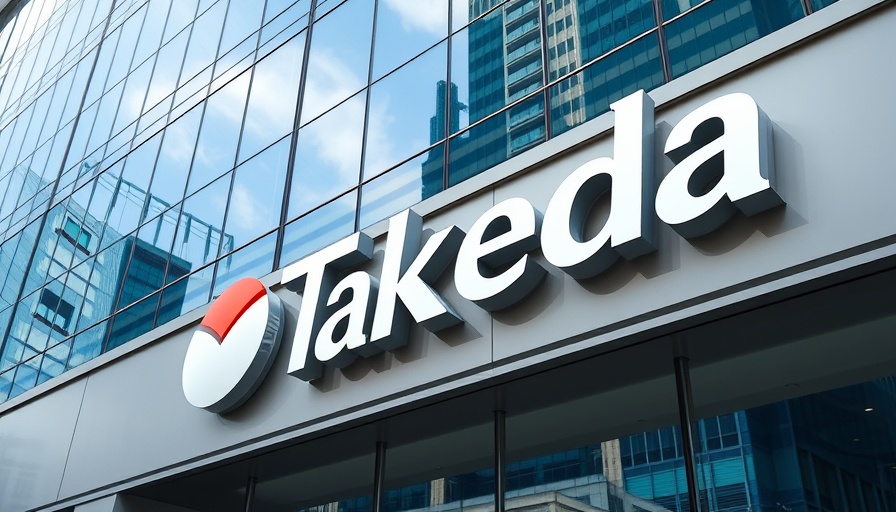
The FDA Greenlights Takeda's Innovative Devices: A Game Changer for Patients
In a significant step for patient care in the realm of immunotherapy, Takeda Pharmaceuticals recently announced that the U.S. Food and Drug Administration (FDA) has granted 510(k) clearance for its new HYQVIA administration devices, HyHub and HyHub Duo. By streamlining the administration of HYQVIA, a widely used intravenous immunoglobulin therapy, these devices are poised to simplify the treatment process for patients with immunodeficiencies.
Understanding the Importance of 510(k) Clearance
The 510(k) clearance from the FDA signifies that Takeda's devices are deemed safe and effective for use. This regulatory pathway is critical for medical devices, enabling manufacturers to market their products by showing that they are substantially equivalent to already legally marketed devices. The significance of this clearance cannot be understated, as it facilitates faster access to innovative therapies and technologies for patients in need.
How HyHub and HyHub Duo Will Revolutionize Patient Experience
The HyHub and HyHub Duo are designed to enhance patient convenience and experience during treatment. By incorporating user-friendly features, these devices allow patients to self-administer HYQVIA at home, reducing the need for frequent hospital visits. This capability not only saves time but also promotes independence among patients, particularly those managing chronic conditions. Additionally, the devices are engineered with ergonomic considerations in mind, aiming to minimize discomfort during administration.
The Role of Immunoglobulin Therapy in Modern Medicine
HYQVIA, a combination of immune globulin and recombinant human hyaluronidase, plays a vital role in treating patients with primary immunodeficiency diseases. By providing patients with the necessary antibodies to fight infections, this therapy can significantly improve their quality of life. As the demand for such therapies rises with the increasing population of immunocompromised individuals, devices like HyHub and HyHub Duo will be essential in ensuring that treatment remains accessible and manageable.
Future Predictions: Expanding Access to Immunotherapy
As medical technology continues to evolve, we can expect further advancements in patient-centered care solutions. The success of the HyHub devices could spur the development of additional innovative products aimed at simplifying the administration of complex therapies. With ongoing research into new immunotherapies and delivery mechanisms, the future looks promising for patients seeking more accessible treatment options.
Expert Insights on the Advancements in Medical Devices
Industry experts note that Takeda’s HyHub devices exemplify a growing trend toward self-administration and at-home care. Dr. Sarah Jennings, a leading immunologist, emphasizes the importance of empowering patients: "As treatment options become more patient-centered, we are witnessing a shift that not only enhances compliance but also fosters a greater sense of agency among individuals managing chronic illnesses. Devices that facilitate self-administration are key to this transformation."
Addressing Concerns: Potential Challenges with Self-Administration
While there are numerous benefits to self-administered therapies, potential challenges exist. Patients may initially feel apprehensive about administering treatment without direct supervision. To address these concerns, Takeda is committed to providing comprehensive training and support resources, ensuring patients feel confident and equipped to use the HyHub devices. This commitment to patient education is crucial for the overall success of this innovative approach.
Conclusion: A New Era in Patient Care
Takeda's 510(k) clearance for the HyHub and HyHub Duo marks a pivotal moment in the evolution of immunotherapy administration. By enhancing the convenience and accessibility of HYQVIA treatment, these innovative devices not only improve patient outcomes but also herald a new era in personalized medicine. As the healthcare landscape continues to evolve, it is evident that advancements like these will play a crucial role in shaping the future of patient care.
 Add Row
Add Row  Add
Add 




Write A Comment